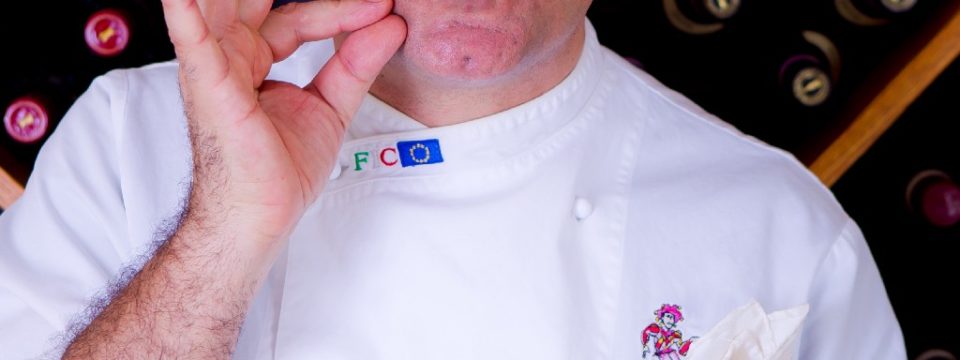Chef Luigi Diotaiuti: “I’d like to start a movement to allow chefs to collaborate better with growers and farmers”
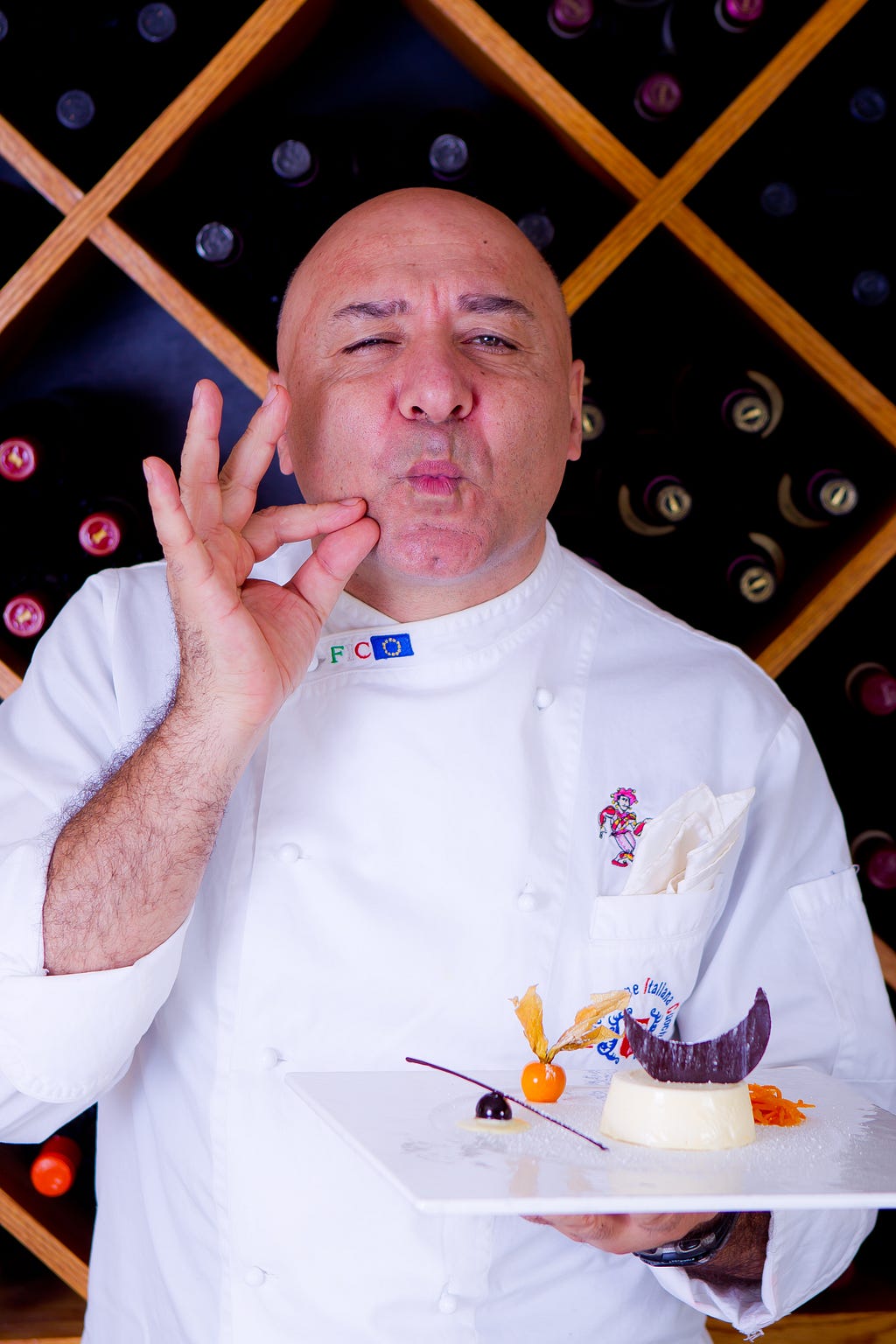
I would start a movement which makes it easy for young chefs to be involved with farming and farmers — to get to know the animals and the produce first hand and to understand the agricultural cycle that is the basis of our industry. In terms of meat and dairy, the well-being and treatment of the animals is an important factor to consider. The health and wellness of our community depends upon good farming practices, and I would like for the restaurant industry and the growers to have more opportunities to collaborate.
I had the pleasure of interviewing Award-winning Chef/Restaurateur/Sommelier Luigi Diotaiuti. Chef Luigi also the founder of an Italian non-profit organization called Basilicata: A Way of Living. A celebrity favorite for decades, he is known for promoting culinary traditions on the verge of extinction in the United States, Italy, and around the globe. Born, raised, and educated in Basilicata, Italy, Chef Luigi trained at some of the world’s most prestigious locations before opening Al Tiramisu, Washington DC’s “most authentic” Italian restaurant twenty-two years ago and its “Best New Place to Be” Aperto, in 2016.
Thank you so much for doing this with us! What inspired you to become a chef (or restaurateur)?
I grew up in the country — on a farm — close to nature and the products we made from it. I witnessed the process of artisan food from beginning to end. That inspired me to go to culinary school, and this became a vocation. Soon after working in a restaurant, I felt that having my own would be the next logical step in my culinary progression.
What has your journey been like since first stepping foot in a kitchen?
Fantastic — it has been a dream come true — more than I expected it to be. The restaurant industry took my life, but in a certain sense, it gave me paradise in return.
Do you have a specialty? If so, what drew you to that type of food?
I am tied to my origins, I grew up and was educated in Italy, and I am particularly fond of the products from my home region such as house-made fresh pasta and Caciocavallo Podolico cheese. I do my best to protect and preserve these products and the recipes and traditions they inspire by using them in both of my restaurants — Al Tiramisu and Aperto, and promoting them on television and with my Italian non-profit organization Basilicata: A Way of Living.
Can you share the funniest or most interesting story that happened to you since you became a chef?
Once at Al Tiramisu we were very busy during dinner — and there were 4 simultaneous birthdays taking place. We accidentally gave one party (who had brought in a special cake) the wrong cake!) We had to excuse ourselves and make some adjustments to their check — but in the end everyone laughed and enjoyed themselves.
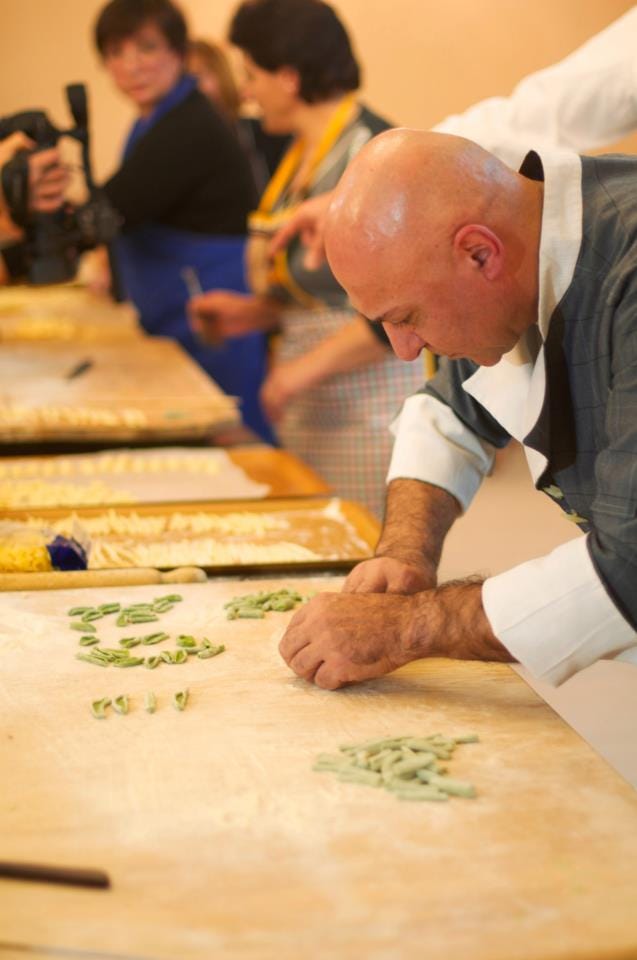
What is your definition of success?
In restaurants, I think you can consider yourself successful when clients look out for you and take care of you. It is a true honor when regular customers go out of their way to make sure that you stay in business. We have been fortunate to have people give us their business during economic crises, bad weather, and even September 11…it makes you feel as if you belong, and that you have an important place in the community, and I am very grateful to everyone who has contributed to our success.
What failures have you had along the way? How have they led you to success?
I once had to sell a restaurant because I opened in an up-and coming area that wasn’t ready to support the type of business that we needed during an economic crisis. We were too new to withstand it, and the fact that the neighborhood wasn’t as established as it is now, made matters worse. This eventually led me to success because when I opened my next restaurant, I made sure that it was in a very stable area and next to major institutions and government agencies that are pillars of the area.
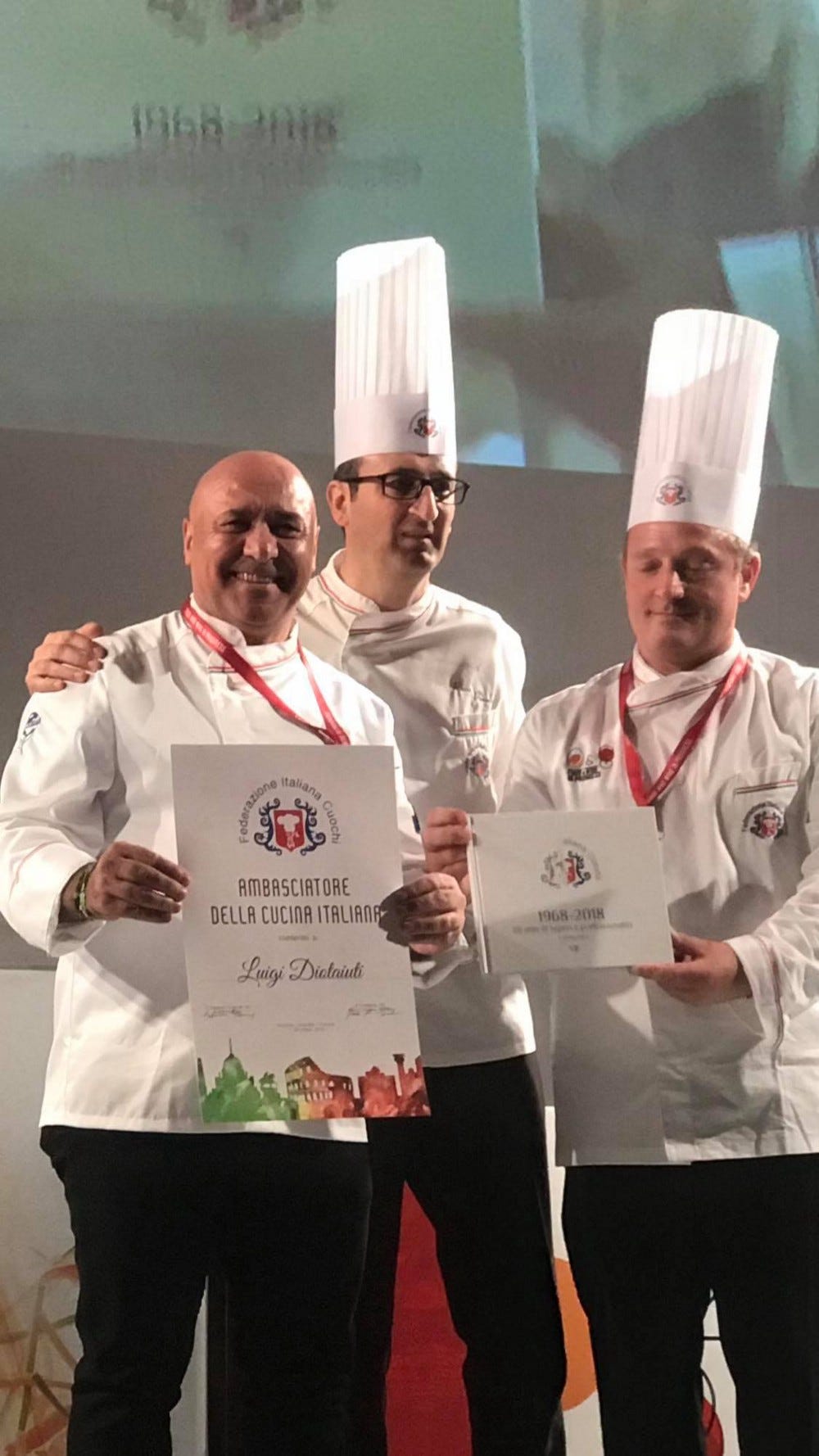
Are you working on any new or exciting projects now?
Yes, my 2nd restaurant, Aperto, just celebrated its second anniversary, so I am continuing to promote it and build its business. In addition, I founded a non-profit organization in Italy called Basilicata: A Way of Living to promote my home region (which I was also named the culinary ambassador of). We host several annual events, so I am always involved in planning something new.
What advice do you have for aspiring chefs?
Looking back on my long career as a chef, I can honestly say I’ve never experienced a more exciting time in the culinary world. For someone with focus, a passion for cooking and the willingness to work hard and long, the possibilities are endless. Beyond those qualities, here are some practical tips for success in a culinary career.
Learn the basics
All basic skills, such as knife skills, methods of cooking, knowledge of nutrition and base ingredients, must combine to form a foundation upon which you can build all other knowledge.
Maintain standards
Safety, hygiene, rules of conduct, and efficiency in the kitchen all rely on standards, and chefs must adhere to the standards. If the standards aren’t met, the result will be dissatisfied employees and patrons, and a struggling restaurant.
Understand terroir
Terroir is the perfect integration of nature and the human beings who share it. All good chefs must have a profound understanding of agriculture’s history, as well as modern practices.
Respect traditions
A chef must be completely proficient in a recipe and its classical method of preparation before reinventing it. Young chefs must understand why a dish has long been prepared a certain way and its significance before they can take the liberty to change it. The more that aspiring chefs can learn about farming, produce, chemistry, history, and culture, the better chefs they will become.
Take responsibility
Chefs must take ownership of the cultures and communities they come from.
We must view food as an instrument for carrying forward our culinary patrimonies. In addition to sheer nostalgia, preserving cultural traditions can help create a larger market for local goods, which in turn helps retain local jobs and boost an area’s economy.
What is the key to creating the perfect dish?
Fresh ingredients and the harmony between humans and nature — seasonal ingredients and techniques that respect tradition.
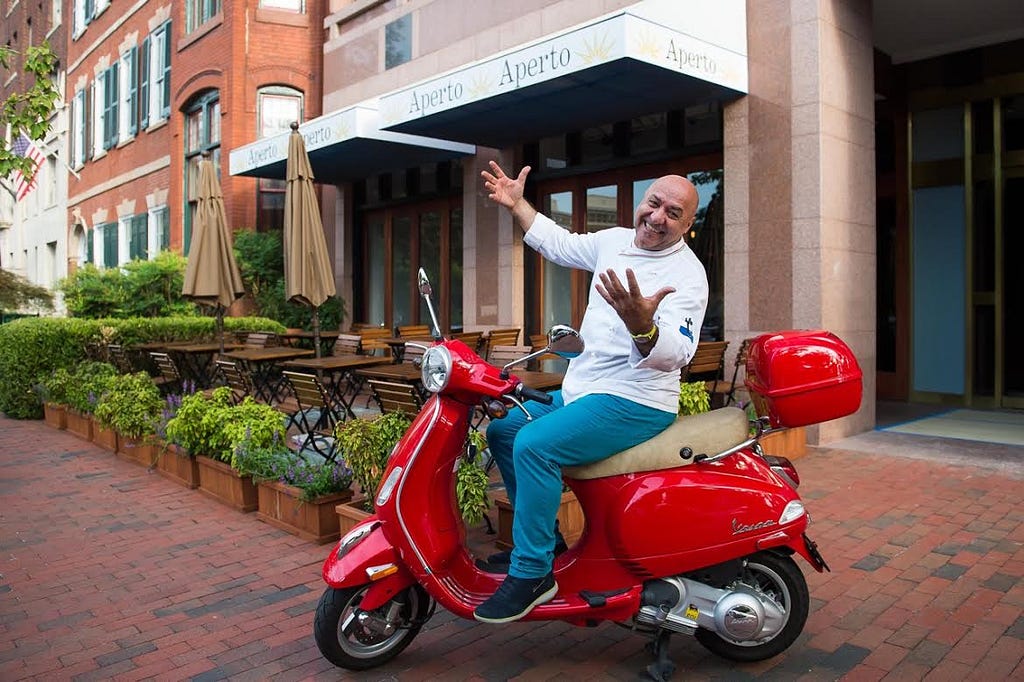
It is said that food is a common ground that brings people together. As someone who makes food for a living, what does this saying mean to you?
I couldn’t agree more. For this reason, I became a member of the American Chefs Corps Network through the U. S Deportment of State which promoted culinary diplomacy. I also led culinary activities and attended programs at the Milan Expo on behalf of both the American Chefs Corps and on behalf of my native region of Basilicata.
What are your “5 Things I Wish Someone Told Me Before I Became a Chef” and why?
1. A chef’s day isn’t 9–5 or 8–5, but often 7am-1am. If you are looking for evenings and weekends free, this is not the job for you. For example, I usually arrive at 8am to check in the goods, give direction on what to do with them, prepare lunch, have meetings with vendors, greet customers, and then prepare for dinner and stay until closing. Sometimes I am even there after closing because something needs to be fixed — like a refrigerator, a door, and an oven, and those things can’t be done during open hours.
2. Special occasions and vacations are not the same for those of us in the restaurant industry. For 35 years, I have not celebrated Christmas or New Years with my family in Italy, even though they mean the world to me.
3. You are not paid by the hour, but earn an honorable salary for your efforts. In my first ten years on the job, I never had a lunch or dinner off. I had so much to learn, that I never wanted to miss a beat.
4. Styles change and you must keep up with them. In my career, I have seen food styles go from traditional to nouvelle to fusion. I like to reinvent dishes, taking inspiration from the past and transforming it into something perfectly suited to today’s palates.
5. The importance of a PR person. In order to get yourself and your restaurant on the scene, it is very worthwhile to interview various PR people and make sure that you are working with the best ones, who understand what distinguishes you from the others and how that is relevant to today’s market. Good PR is always a good investment.
You are a person of great influence. If you could inspire a movement that would bring the most amount of good to the most amount of people, what would that be? You never know what your idea can trigger.
I would start a movement which makes it easy for young chefs to be involved with farming and farmers — to get to know the animals and the produce first hand and to understand the agricultural cycle that is the basis of our industry. In terms of meat and dairy, the well-being and treatment of the animals is an important factor to consider. The health and wellness of our community depends upon good farming practices, and I would like for the restaurant industry and the growers to have more opportunities to collaborate.
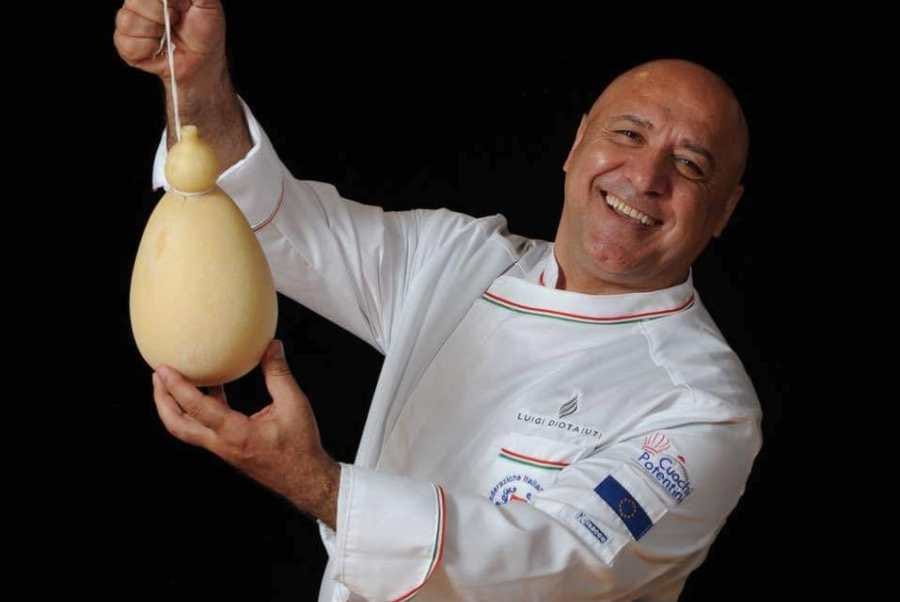
Some of the biggest names in Business, VC funding, Sports, and Entertainment read this column. Is there a person in the world, or in the US with whom you would love to cook for and why?
I have cooked for celebrities and politicians for decades, and I am grateful to all of our customers. In the restaurant industry, we have a saying that “the most important customer is always the person who enters tomorrow morning” meaning that you always have to stay on your toes and treat everyone equally well.
Chef Luigi Diotaiuti: “I’d like to start a movement to allow chefs to collaborate better with… was originally published in Authority Magazine on Medium, where people are continuing the conversation by highlighting and responding to this story.
